
MBTAAnalysis: A look inside the MBTA
0 Comments
/
The MBTA shuttles over a million passengers a day around Greater…
 https://pioneerinstitute.org/wp-content/uploads/CloseupClock-1.jpg
739
1244
Mary Connaughton
https://pioneerinstitute.org/wp-content/uploads/logo_440x96.png
Mary Connaughton2017-02-20 12:34:192017-02-21 09:47:58The Clock is Ticking…….
https://pioneerinstitute.org/wp-content/uploads/CloseupClock-1.jpg
739
1244
Mary Connaughton
https://pioneerinstitute.org/wp-content/uploads/logo_440x96.png
Mary Connaughton2017-02-20 12:34:192017-02-21 09:47:58The Clock is Ticking…….
Pioneer Institute Study Finds Outdated U.S. Immigration System Delays Creation of 150,000 Businesses and 500,000 Jobs
Global competitors seizing opportunities to attract top talent

The House Call – Cambridge Adopts a Zoning Ordinance Allowing 4 to 6-Story Residential Buildings Citywide
The March edition of The House Call covers recent zoning changes in Cambridge that allow 4 to 6-story buildings on every residential lot. It also summarizes reform recommendations from a state commission tasked with advising the Healey administration on how to ramp up housing production.

Study: Inclusionary Zoning Helps Some, but Can Jeopardize Broad-Based Affordability
Policies often force developers to raise market-rate prices to compensate for losses on affordable units

Pioneer Institute Study Says MA Housing Permitting Process Needs Systemic Reform
Highlights Bureaucratic licensing process and appeals as areas to fix

Study Finds Bump in State Population Due to Changes in Census Bureau Methodology
BOSTON – State leaders cheered in January when the U.S. Census Bureau estimated that Massachusetts’ population grew by 69,000 in 2024, more than at any other time in 60 years. Unfortunately, a closer look reveals that the higher estimates are largely driven by a change in Census Bureau methodology designed to better capture the influx of humanitarian migrants.

The House Call – Accessory Dwelling Units are Officially Legal Statewide in Massachusetts
This issue of The House Call covers Massachusetts' recent legalization of accessory dwelling units, as well as a bill filed in the state legislature last month that would broadly prevent localities from enforcing certain housing-related regulations.

Pioneer Institute Study Compares MA Workforce Development System to Those in Peer States
(Boston, Mass) - As Massachusetts has significantly increased investment in a myriad of workforce training programs to better compete for talent, a new Pioneer Institute report examines the Massachusetts workforce development system to determine what operational changes would better maximize results, and it compares the system to those in peer states.

Mapping Mass Migration: New England State and County Population Change, 2020 to 2023
This week's edition of Mapping Mass Migration will cover state and county population change in Massachusetts and New England from 2020 to 2023, how population has shifted for major demographics during that period, and how population change in general fits into the broader picture of a state's economic wellbeing.
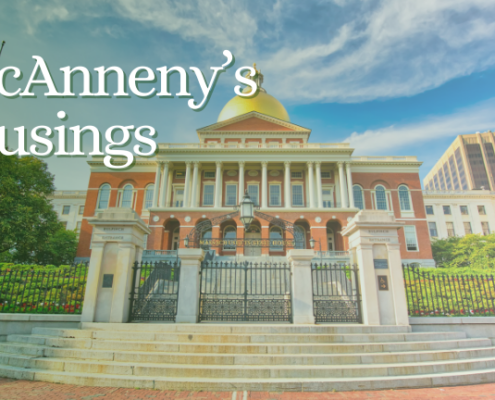
McAnneny’s January Musings – Legislative Transparency Takes Center Stage in the New Year
A new year unfolds with so much promise. It offers us all a fresh start, a clean slate, a reset. It is a time for reviewing, reassessing and revising.

Video Statement of Frank J. Bailey (Ret. Honorable), President of Pioneer Public Interest Law Center
Frank J. Bailey, President of the Pioneer Public Interest Law…
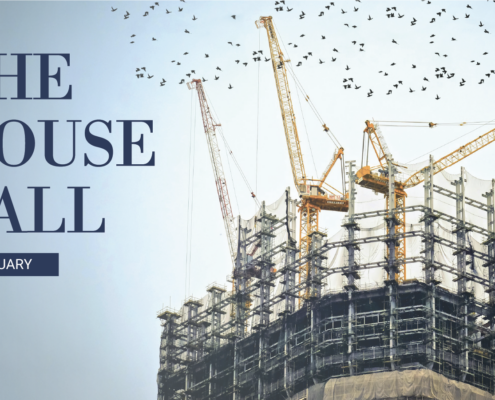
The House Call – January
This issue of The House Call covers the implementation of Boston's energy efficiency standards for large buildings. It also provides an update on the MBTA Communities Act after a busy fall Town Meeting season featuring rezoning votes, forced referenda, and - more recently - the SJC's Milton case decision.
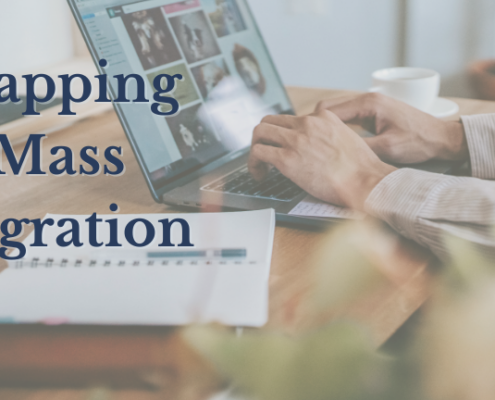
Mapping Mass Migration – Remote Workers: The Most Mobile Residents
This week's edition of Mapping Mass Migration will cover…

Mapping Mass Migration: Massachusetts Remains a Top Destination for Immigrants
This week's edition of Mapping Mass Migration will cover foreign migration into Massachusetts in 2023 and since 2010, including an examination of the most and least attractive destinations for immigrants by state, a demographic breakdown of immigrants arriving in Massachusetts, and an analysis of how these trends have changed over time.
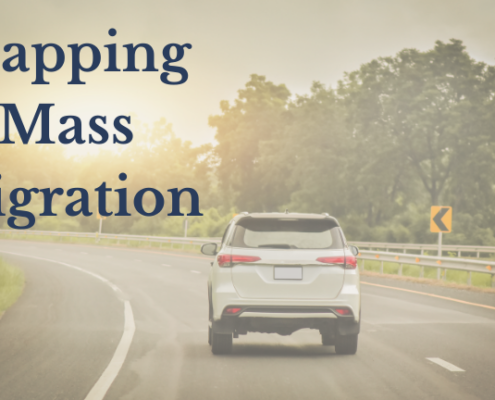
Mapping Mass Migration: New Census Data Shows Continued Out-Migration from Massachusetts to Competitor States
"Mapping Mass Migration" is Pioneer's new newsletter covering…
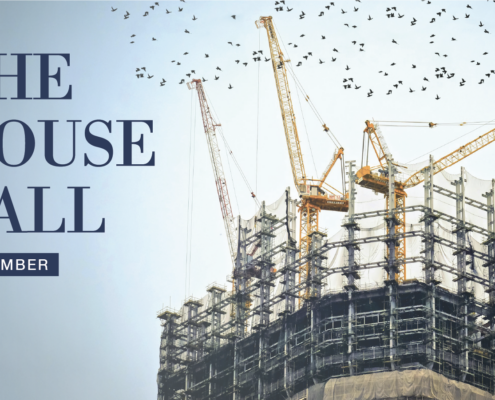
The House Call – Mayor Wu Wants to Overhaul Boston’s Arcane Development Approvals Process? Here Are Three Reform Options
Pioneer Institute is debuting The House Call, a monthly newsletter covering housing-related news and market trends in Massachusetts. The first issue explores reform options for Boston's arcane development approvals process and major reform items from the state's November 2024 economic development bill. Read our December issue today!

Pioneer Institute Releases Examination of Metropolitan Housing Markets; Obtains Insights Into Improving Affordability
Boston, Mass. – A Pioneer Institute review of reforms enacted in metropolitan areas across the country finds that to achieve more affordable housing in the coming decades, Greater Boston should focus on policies such as making it easier to build small multi-family projects, retrofit commercial areas with new housing, and loosen parking and minimum lot size requirements.

FY2026 Consensus Revenue Hearing – Forecasting of Revenues is Tricky Business
The next major event on the legislative calendar is the FY2026…

Pioneer Institute Study Finds Massachusetts Saw Four-Fold Loss of Income to Net Outmigration
Net loss accelerated in recent years; main reasons include high taxes, housing and healthcare
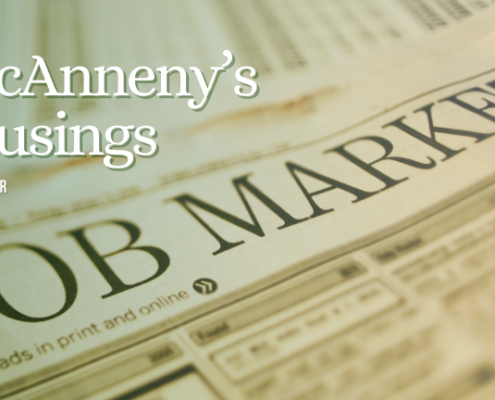
Massachusetts Job Market Bears Watching
The Bureau of Labor Statistics' most recent national jobs report…
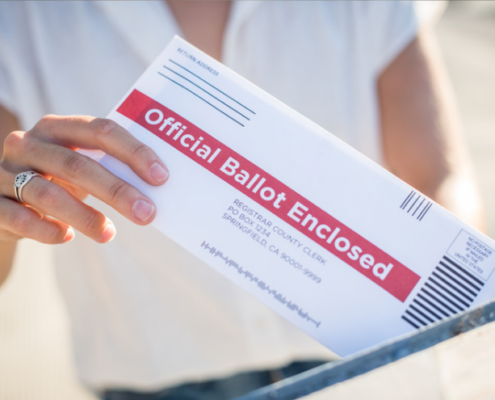
McAnneny October Monthly Musings – Ballot Initiatives
Election season is upon us. In a few short weeks, voters will…

Pioneer Institute Study Finds Wide Range of Approaches to Compliance with MBTA Communities Law
Lexington’s approach seen as a model
BOSTON – As Massachusetts’…

Wrap Up of the Massachusetts Legislative Session – Or Is It??
The Massachusetts Legislature meets for two years beginning in…

What’s Included in Massachusetts’ $5.2 Billion Housing Bond Bill?
On August 1, 2024, the Massachusetts state legislature finalized…

Pioneer Institute Statement on the Project Labor Agreement Provision in the Massachusetts Economic Development Bill
Governor Healey should veto a provision in the recently passed…

Massachusetts Affordability and Competitiveness Ranking is in Freefall
Each year, CNBC ranks the 50 states on 10 broad categories of…

Study: U.S. Immigration System Limits Benefits Foreign Students Could Provide
Slow, inefficient system that discourages entrepreneurship puts U.S. at a competitive disadvantage

Is Free Community College What Massachusetts Needs?
The Massachusetts Senate proposed making community college tuition free for all residents of the Commonwealth as part of its FY2025 budget. Pioneer explores whether this program is what Massachusetts needs to prepare its residents for gainful employment and how it interacts with the state's extensive workforce development infrastructure.

Latest IRS Migration Data Show Exodus from Massachusetts Continues
Massachusetts shed more than double the amount of adjusted gross income (AGI) in 2022 than any year prior to 2020, making it fifth among states in net AGI out-migration behind only California, New York, Illinois and New Jersey, according to data released Thursday by the Internal Revenue Service.

Massachusetts Legislature Procrastinates Once Again
There are less than seven weeks left to the Massachusetts Legislature’s…

Commentary On The Senate Ways And Means Committee FY2025 Budget
The Senate Ways and Means Committee (SWM) released its FY2025 budget on May 7th. This spending plan totals $57.9 billion, an increase of $1.8 billion over the FY2024 General Appropriations Act (GAA). Like the Governor’s and House’s versions of the budget, the SWM budget is based on the consensus revenue estimate of $41.5 billion in tax revenue - a decrease of $208 million from last year’s consensus figure.
